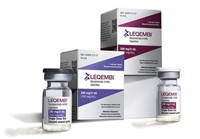Advertisement
Grab your lab coat. Let's get started
Welcome!
Welcome!
Create an account below to get 6 C&EN articles per month, receive newsletters and more - all free.
It seems this is your first time logging in online. Please enter the following information to continue.
As an ACS member you automatically get access to this site. All we need is few more details to create your reading experience.
Not you? Sign in with a different account.
Not you? Sign in with a different account.
ERROR 1
ERROR 1
ERROR 2
ERROR 2
ERROR 2
ERROR 2
ERROR 2
Password and Confirm password must match.
If you have an ACS member number, please enter it here so we can link this account to your membership. (optional)
ERROR 2
ACS values your privacy. By submitting your information, you are gaining access to C&EN and subscribing to our weekly newsletter. We use the information you provide to make your reading experience better, and we will never sell your data to third party members.
Neuroscience
Lecanemab wins full regulatory approval from FDA
Medicare will cover the Alzheimer’s drug for people who participate in observational studies
by Shi En Kim
July 6, 2023
| A version of this story appeared in
Volume 101, Issue 22

The US Food and Drug Administration has granted traditional approval to Eisai and Biogen’s Alzheimer’s therapy lecanemab, making the drug the first in its class to fully gain the green light. Marketed as Leqembi, the monoclonal antibody treatment slows disease progression by clearing amyloid-β protein deposits in the brains of people with Alzheimer’s disease.
According to the FDA press release, lecanemab is primarily intended for patients with mild cognitive impairment owing to early-stage Alzheimer’s disease. The drug’s prescription includes a boxed warning about the potential hazards: lecanemab carries the risk of cerebral swelling and hemorrhaging, collectively known as amyloid-related imaging abnormalities (ARIA). The risk of brain swelling, in particular, is higher for people who carry two copies of the apolipoprotein E4 gene than for those bearing only one genetic copy or none.
Moreover, at least three deaths occurred among Phase 3 clinical trial participants who were on blood thinners, according to media reports. As such, the prescription recommends genetic testing before starting treatment and caution for patients who are taking anticoagulants.
The regulatory nod makes access to a drug possible, but insurance coverage is what makes a drug affordable for most people, especially an expensive biologic like lecanemab. The drug carries an annual price tag of $26,500. So far, the US Centers for Medicare and Medicaid Services (CMS) will cover it only for Medicare patients in a registry—that is, those whose physicians have enrolled in a data collection program to further study the drug’s real-world performance.
“The scientist in me is happy that we’re collecting data” via the registry system, says Anton Pjetur Porsteinsson, a clinical researcher at the University of Rochester Medical Center. “Ultimately, that will have to end” to make way for broader access to lecanemab. He says that the right thing to do is for Medicare to scrap the registry requirement 12–18 months after traditional approval.
But a sizable chunk of the real-world patient cost for lecanemab is procedural. Like most biologic drugs, it is administered through intravenous infusion, a costly process that requires the supervision of medical personnel in a hospital setting. Given the risk of ARIA, doctors may choose to routinely monitor patients on lecanemab with magnetic resonance imaging (MRI) so that they can stop the regimen early if needed.
Then there’s the issue of biomarker analysis and diagnostics, which also don’t come cheap. Phase 3 clinical trials showed that the drug worked best in patients with early-stage symptoms and evidence of amyloid-β in their brains. As such, positron-emission tomography (PET) scans and cerebrospinal fluid analysis for amyloid-β are necessary to differentiate this patient group from the broader population.
Currently, the CMS covers one PET scan per lifetime, a spokesperson says via email. The organization is reconsidering its national coverage policy of PET scans for amyloid-β. Other amyloid tests, such as cerebrospinal fluid measurements and MRIs for ARIA detection, have also recently been included in Medicare's coverage.
Even so, implementing coverage for testing will be a challenge, says Jodi Liu, a policy researcher at the RAND Corporation. Millions of people with Alzheimer’s are estimated to have mild cognitive impairment that makes them suitable candidates for lecanemab, but to identify them will require testing a patient group much larger than that for whom the drug is intended. It’s a potentially costly but ultimately necessary decision. “A very important part of this entire delivery of this therapy is making sure that the patients who can benefit from it will receive it,” Liu says. That requires clarifying what falls under Medicare coverage for every step of the treatment where costs will accrue.
Despite the open questions, lecanemab’s newly minted status as an approved drug is a welcome development—especially for desperate people who have a disease that has faced a long drought of efficacious treatments. “While it is not for everyone, it is still the first fully approved medication that is disease modifying,” Porsteinsson says. “This ultimately will become a common approach to care. It will just take a little bit of time for everyone to figure out how that exactly plays out.”
UPDATE:
This article was updated on July 12, 2023, to include a comment from the US Centers for Medicare and Medicaid Services about coverage of imaging procedures.





Join the conversation
Contact the reporter
Submit a Letter to the Editor for publication
Engage with us on Twitter